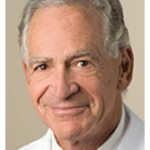WASHINGTON, D.C.—A friendly, but stern, voice talks to Joseph Kvedar, MD, vice president of Connected Health at Partners HealthCare, from his smartphone. Dr. Kvedar has just woken up.
“Good morning, Joe! Here’s the tale of the tape. Your blood pressure and cholesterol are fine. Your sleep deficit is now up to three hours for the week. You’ve put on 2 lbs. since last month. And your activity level is falling short of your goal by 25%. You need more sleep, and you need more exercise if you’re going to get into that size 40 tuxedo for Julie’s wedding next March. One hundred and forty days to go and counting. Get moving, pal!”
Later, the voice—a form of artificial intelligence Dr. Kvedar has named “Sam”—worries that Dr. Kvedar seems to be walking in the direction of a bakery for a chocolate chip cookie, warns him against it, presents him with a coupon to a nearby gym and suggests he take up swimming again.
This scenario is fictitious, but not by much. Dr. Kvedar, who gave the opening lecture at the 2016 ACR/ARHP Annual Meeting, Education at Scale—Beyond an Experiment, in November said such conversations will likely be taking place as soon as five years from now as technologies continue to advance. It’s the direction of technology in general, and healthcare will be no different, Dr. Kvedar said.
Interconnectedness of Health
“In five years, 20 billion everyday objects that we now think of as inanimate will be what you would call ‘smart,’” he said. “That is to say, they will have sensors in them and network capabilities, they’ll pick information up from their environment. They’ll process information, they’ll communicate with each other, they’ll communicate with the environment, and we’ll know the world in a very different way.”
He describes how this coming reality is taking shape in a book he published last year, The Internet of Healthy Things. It will be a world in which vast amounts of data—from heart rates to location, step counts to weather—will be synthesized in ways that will be engaging and motivating, and will make real impacts on people’s health. The result will be healthcare that permeates our daily routine.
Even better, with features like Sam, the personality of the “coach” can be tweaked to our liking—not too much drill sergeant, not too much coddling, but just right. Through questionnaires, the technology can understand what motivates us and incorporate that information into its behavior, which ultimately will benefit the user.



